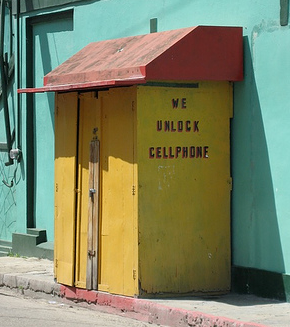Why Won’t Those Jerks At Sprint Unlock My iPhone? They Can’t
Here’s the thing: Sprint and other carriers that use the Sprint network use a different band, CDMA. Some of their devices are capable of being used on foreign GSM networks and even the domestic ones, AT&T and T-Mobile. However, a Sprint representative explained to us that older devices sold for use on the Sprint network didn’t work on GSM networks or have a slot to add a SIM, so it wasn’t possible to unlock them.
This leads to a lot of confusion. One reader wrote to us railing against Sprint for refusing to unlock his iPhone 4, even though the 4 lacks the physical capability to accept a SIM. “I contacted Sprint and the script of excuses and lies began,” he wrote to Consumerist. “I implore you to do what you can to get the story of Sprint’s lone holdout stance known.” Sprint can only unlock the iPhone 4 when they develop time travel. Maybe that will come with the CDMA version of the iPhone 6?
So what about that CTIA thing? While some devices are physically able to be unlocked, it’s not an option for every phone that Sprint and Virgin sell. The thing is, while carriers have finally agreed to some voluntary standards for unlocking devices, those standards don’t go into effect until February 2015. That means that the phone you bought a couple of years ago wasn’t designed or marketed with the capability for unlocking in mind. “We have to develop our new devices to comply with the commitment,” Crystal Davis, who works on policy issues for Sprint, explained to Consumerist.
Want more consumer news? Visit our parent organization, Consumer Reports, for the latest on scams, recalls, and other consumer issues.


